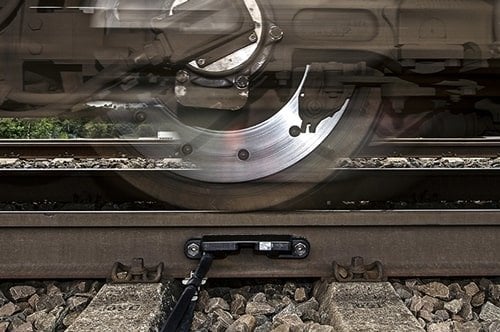railway-international.com
15
'21
Written on Modified on
Thales to partner with Network Rail to enhance track safety at UK level crossings
Network Rail has signed a contract with Thales to repurpose its tried-and-tested train detection system to replace ageing mechanical treadles at safety critical track locations

The eight-year framework will see Thales teams based in the UK and Germany develop and supply Az Lx, a new electronic treadle, for applications across the network, including level crossings, which will improve reliability and reduce passenger delays.
Tancred Porteous, Head of Operations for Main Line Signalling at Thales in the UK said: “This contract will make a big impact on Network Rail because we’re tackling a major thorn in their side that prevents passengers from reaching their destinations on time.”
He added: “This is an exciting opportunity for us too. The contract not only confirms Thales’s position as a partner and supplier of train detection systems to Network Rail, it also adds a new product to our portfolio that potentially has wider applications for European railways.”
Thales’s Az LM axle counter has formed an integral and trusted part of Network Rail’s train positioning strategy in the UK for two decades.
However, Network Rail has a problem with the reliability of the ageing system of 11,000 trackside electronic and mechanical treadles sited, in particular, on the approaches to level and user works crossings. A high proportion of track closures and passenger service delays are due to the failure of treadles which trigger barriers at level crossings.
So, in 2020, Network Rail put to tender a specification and framework contract for a supplier to develop and supply a more reliable replacement system.
Treadles are simple trackside devices which register a passing train and its direction at a single point in time, through the electromagnetic field it generates across the track. Thales’s solution is to take its proven, high-fidelity Az LM unit system, which is produced in Thales’s Arnstadt site in Germany, and adapt a number of its internal boards to meet the specification.
“To develop a new system would have been complex, expensive and time consuming,” explained Sabrina Naussedat, Sales Manager at Thales Germany. Taking an existing product, rather than starting from scratch, reduces development cost and retraining needs for operators and installers. As well as being maintenance free, the majority of its spare parts are common to Az LM, which subsequently reduces through-life costs.
“However, there were challenges; it wasn’t easy to take a high-fidelity system and strip it back for repurposing without changing the underlying performance and reliability of the product.”
Thales in the UK and Germany will now collaborate on working trials of the system, sponsored by Network Rail, before Az Lx is manufactured and rolled out nationwide.
www.thalesgroup.com

